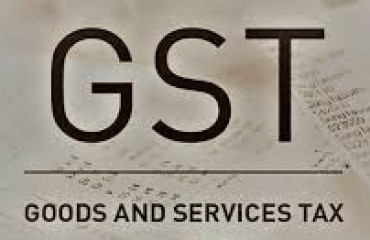
At a meeting with the state chief ministers, Prime Minister Narendra Modi has asked the state governments to work to improve their collections of the Goods and Services Tax (GST).
At a meeting with the state chief ministers, Prime Minister Narendra Modi has asked the state governments to work to improve their collections of the Goods and Services Tax (GST).
The GST became a reality five years ago, after years of discussions, when states came on board to pool their fiscal powers over indirect taxes with those of the Centre. The guarantee that gave them the confidence to finally accept GST as a replacement for a plethora of taxes was that they won't have to suffer any loss of revenue, and if GST collections fell short of the target of 14 per cent annual increases agreed to by consensus, the Centre will make good the shortfall. The Centre's commitment at the time of rolling out the GST in July 2017 was that it will pay them this compensation for five years. That compensation regime ended on June 30, and the states, reeling under a revenue crunch due to the weakness in the economy after Covid and long-term structural constraints preceding the pandemic, want the compensation system to be extended.
The prime minister is right to encourage them instead to focus on improving the collections from GST. Although before getting to why Mr. Modi is right, it is important to recognise that the Centre also must note that a key reason for the states' financial squeeze is the fact that the states' share in non-GST taxes collected by the Union government has (at 29% to 32%) since 2020 been a whopping 10 percentage points less than the recommendations of the fourteenth and fifteenth finance commissions. The reason for this is the Centre's increasing and excessive reliance on a variety of cesses and surcharges, the revenues collected which do not have to be shared with the states.
In 2014, these kinds of levies accounted for 6 per cent of the total tax collections raised. Now they make up almost a quarter. Naturally, the states feel shortchanged, even when the Centre tries to reason that it foots the bill for defence and national security. These non-GST issues must be addressed by the Centre and the states for better trust and fiscal relations. Ensuring states have funds to spend is crucial for the GDP recovery, as their expenditures tend to lift economic growth more than those of the Centre.
On the GST collections, it is important to let the guaranteed compensation end so that the states know that they cannot depend on the Centre, and have to improve collections, giving them what chairman of the Thirteenth Finance Commission Vijay Kelkar, as also former Chief Economic Adviser Arvind Subramanian, called "skin in the game". The guarantee was necessary to remove states' anxiety in a new and untried system but created moral hazard. Any guarantee's comfort takes pressure off the states for improving collections, and plugging leakages and evasion. If the original design had included a tapering compensation mechanism, in which the quantum reduced year after year, and the target revenue growth had been pegged to the GDP growth rather than the over-optimistic 14%, regardless of the state of the economy, the states' incentives would not have become distorted.
The convention of taking decisions by consensus in the GST Council—headed by the Union finance minister with finance ministers of the states as members—should be discontinued. Unlike the Union finance minister, the state finance ministers primarily oversee indirect taxes, and therefore, stand to lose the meatiest portion of their work allocation if the GST were to become smooth and predictable. A simple GST will not require anyone to lobby them, withering their clout. Populist rate cuts, especially in the run-up to elections, and exemptions and exclusions from the GST, such as for real estate and fuels, let politicians retain controls. Their incentives are aligned in making the GST Council keep the GST rates structures complex and ever-changing rather than stable.
